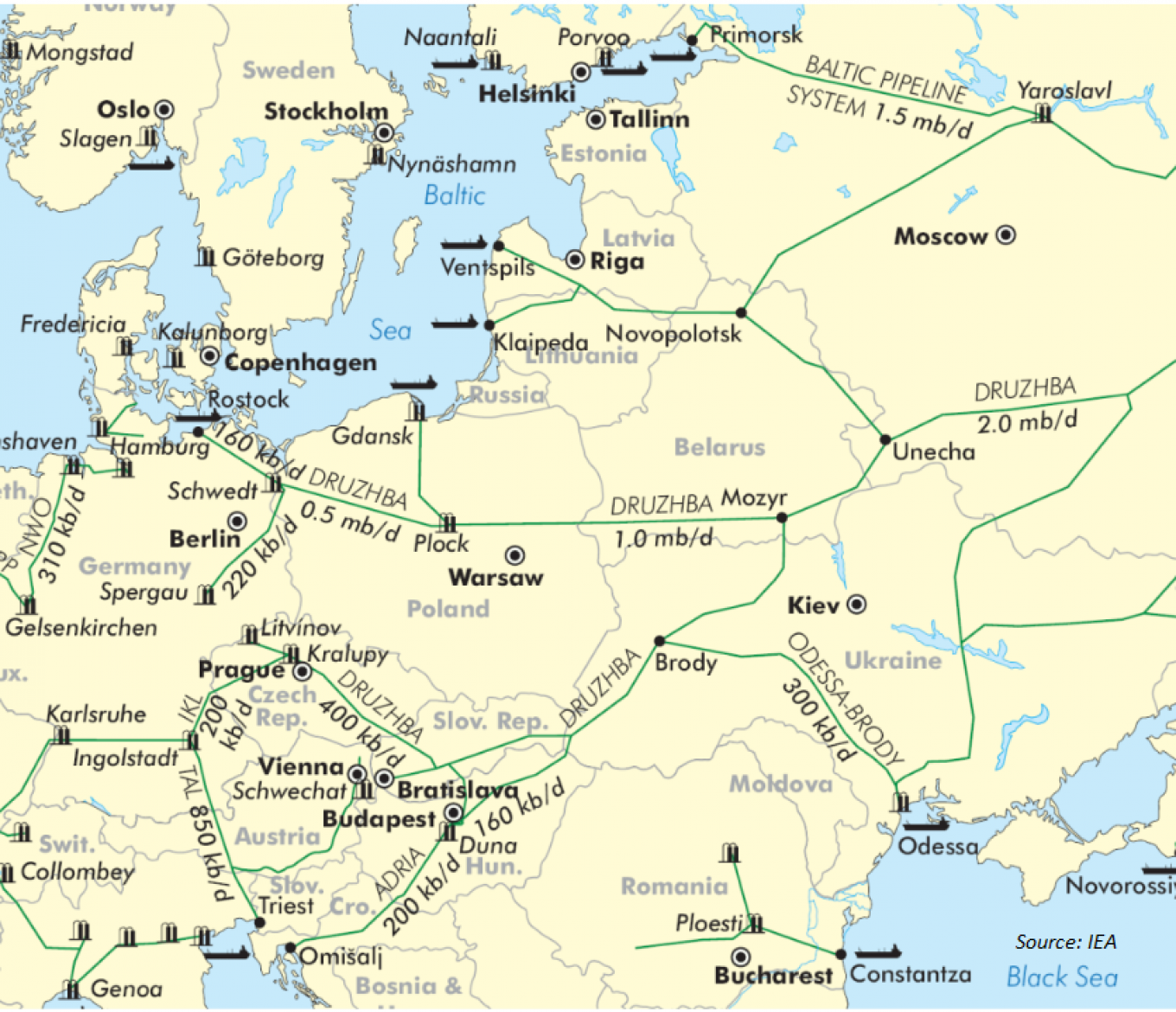Belarus has no idea when clean Russian oil will flow across it once more to customers in Europe after contamination rocked the pipeline, sources at Belarusian state oil firm Belneftekhim and in the trading sector said.
Flows via the main route of the Druzhba pipeline were suspended in late April because tainted crude had entered the system, sending shocks through global oil markets and damaging Russia’s image as a reliable supplier of energy.
The Energy Ministry in Moscow said on Saturday that clean Russian oil had arrived at the Mozyr hub in southeast Belarus, from where export pipelines branch off to Poland, Ukraine, Hungary and Slovakia.
 IEA
IEABut that clean oil is backed up behind millions of barrels of contaminated crude in the pipeline system and there is no clear plan yet on how to discharge the tainted supply, traders and industry sources have said.
Asked whether there was clarity on the resumption of flows to Europe via Druzhba, a trading source said on condition of anonymity: “We don’t have any information on this, we haven’t been given any instructions.”
A Belneftekhim source said there was no information on when flows could resume. The Russian oil pipeline monopoly Transneft failed to reply to a request for comment.
The Soviet-built Druzhba (Friendship) pipeline normally transports around 1 million barrels per day of crude, which accounts for some 1 percent of global oil trade.
Druzhba crude passes through Belarus before going to European customers. The section of the pipeline inside Belarus is controlled by a local firm, Gomeltransneft Druzhba.
Transmission via Druzhba was halted due to high levels of organic chloride, a chemical compound used to boost oil extraction by cleaning wells and accelerating the flow of crude.
Options for disposing of the contaminated oil include selling it at a heavy discount or storing it in tanks. But customers are not keen and there is insufficient storage capacity, trading sources say.
Some crude that reaches Mozyr is fed into a refinery there. The Mozyr plant has yet to resume crude processing and is still cleaning tainted equipment, the Belneftekhim source said.
Separately, the Russian Baltic Sea port of Ust-Luga, which is linked to Druzhba, is still loading contaminated oil onto tankers, trading sources said. It was hard to find a buyer for this oil, they added.
The Russian Energy Ministry has said clean oil was expected to arrive at the port on May 7.
